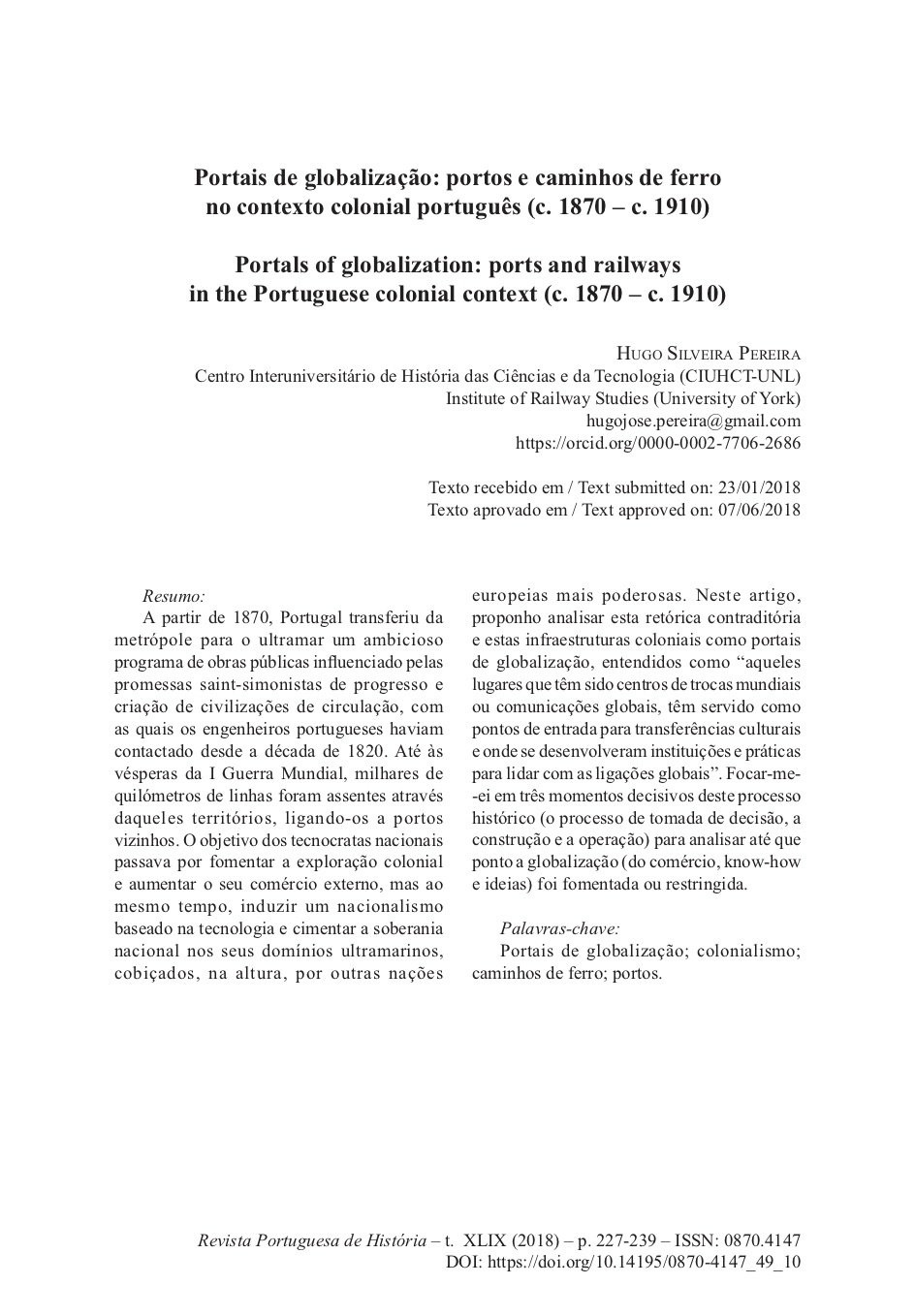Portals of globalization: ports and railways in the Portuguese colonial context (c.1870–c.1910)
- Author(s)
- Year
- 2018
- Journal
Revista Portuguesa de História, Vol. XLIX
- Nr. of Pages
- 227-239

Abstract
From the 1870s onwards, Portugal transferred from the mainland to its colonies an ambitious public works programme, influenced by the saint‑simonianist promises of progress and creation of civilizations of circulation that Portuguese engineers contacted since the 1820s. Until the eve of World War I, thousands of miles of railway track were laid across these territories, connecting them to neighbouring harbours. The goal sought by the Portuguese technocrats was to develop the colonies output and to increase foreign trade, but at the same time enhance a technologically-based nationalism and ascertain the Portuguese sovereignty in the overseas domains, coveted at the time by other, more powerful, European nations. In this paper, I propose to analyse this contradictory rhetoric and these colonial infrastructures as portals of globalization, understood as “those places that have been centres of world trade or global communication, have served as entrance points for cultural transfer, and where institutions and practices for dealing with global connectedness have been developed”. I will focus on three decisive moments of this historical process, the decision +-making process, the construction and the operation, and analyse to what extent globalization (of trade, know+-how, and ideas) was fostered or restrained.